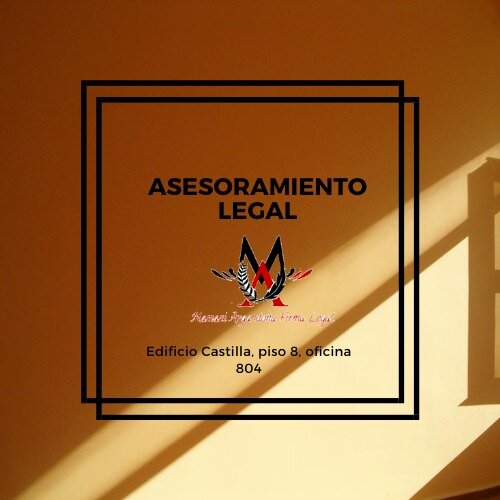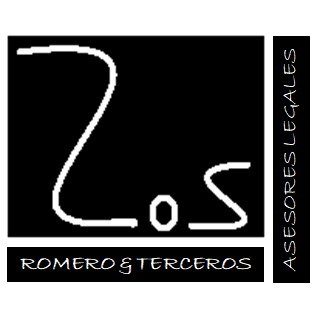Best Sustainable Finance Lawyers in Bolivia
Share your needs with us, get contacted by law firms.
Free. Takes 2 min.
Or refine your search by selecting a city:
List of the best lawyers in Bolivia
About Sustainable Finance Law in Bolivia
Sustainable finance in Bolivia refers to financial activities and investments that take environmental, social, and governance (ESG) factors into account. The goal is to support economic growth while ensuring environmental protection, social inclusion, and long-term financial stability. Over recent years, Bolivia has started integrating sustainable finance principles into both public and private sectors, in line with international commitments such as the Paris Agreement and the United Nations Sustainable Development Goals. This has brought about new regulations, financial incentives, and reporting requirements for businesses, investors, and financial institutions operating within the country.
Why You May Need a Lawyer
Navigating the evolving field of sustainable finance in Bolivia can be complex. Legal counsel is often required in the following situations:
- Complying with new or existing sustainable finance regulations and reporting standards
- Structuring green bonds or other ESG-focused financial products
- Negotiating investment agreements with sustainability clauses or environmental impact provisions
- Addressing disputes related to compliance, environmental impact assessments, or sustainability performance
- Obtaining permits or approvals for projects with significant environmental or social implications
- Ensuring due diligence in mergers, acquisitions, or financing involving sustainability-focused entities
- Assisting with government incentives and programs promoting sustainable development
Local Laws Overview
Bolivia’s legal landscape concerning sustainable finance is shaped by a mix of general finance regulations, environmental protection laws, and specific provisions focused on sustainability. Important aspects include:
- Environmental Legislation: Laws such as the Environmental Law No. 1333 set requirements for environmental impact assessments, permits, and remediation procedures for projects with environmental implications.
- ESG Reporting and Disclosure: Regulations increasingly require companies to report on their sustainability practices, especially those seeking access to public funds or foreign investment.
- Banking and Finance Regulation: The Financial System Supervisory Authority (ASFI) oversees compliance with both traditional and emerging sustainable finance regulations, including green bonds and sustainable loan frameworks.
- Public Incentives: Government policies provide financial incentives and support for projects aligned with national and international sustainability goals.
- International Standards: Companies and institutions engaged in cross-border transactions may also be subject to international sustainable finance standards and best practices.
Frequently Asked Questions
What is sustainable finance?
Sustainable finance refers to any form of financial service that incorporates environmental, social, and governance (ESG) criteria. The aim is to promote responsible investments and sustainable economic growth.
Are there specific laws governing sustainable finance in Bolivia?
While there is no single comprehensive sustainable finance law, there is an evolving framework that includes environmental, financial, and investment regulations with sustainability requirements.
Who oversees compliance with sustainable finance regulations in Bolivia?
The Financial System Supervisory Authority (ASFI) is the main regulator, particularly for financial institutions, while the Ministry of Environment and Water provides oversight regarding environmental compliance.
Can foreign investors participate in sustainable projects in Bolivia?
Yes. Bolivia encourages foreign investment in sustainable projects, though investors must comply with local sustainability, environmental, and financial regulations.
What is a green bond?
A green bond is a fixed-income instrument designed to fund projects that have a positive environmental or climate-related impact. Bolivia has started implementing frameworks for the issuance of green bonds.
What are the main requirements for companies involved in sustainable finance?
Companies may need to conduct environmental impact assessments, adhere to ESG reporting standards, and comply with financial monitoring by authorities such as ASFI.
Are there financial incentives for sustainable projects in Bolivia?
Yes. The government offers tax breaks, grants, and loans for projects that align with its sustainable development objectives.
How do I verify that an investment or project is compliant with sustainable finance rules?
Legal due diligence, environmental impact assessments, and review by regulators such as ASFI and the Ministry of Environment and Water are crucial steps.
What should I do if there is a dispute involving sustainable finance or environmental compliance?
Consult a lawyer specializing in sustainable finance or environmental law to understand your rights, possible remedies, and required steps under Bolivian law.
How can I stay updated on changes to sustainable finance regulations?
Regularly consult governmental sources, seek advice from legal professionals, and participate in seminars or workshops organized by industry associations.
Additional Resources
The following organizations and resources can provide valuable support and information:
- Financial System Supervisory Authority (ASFI): Regulates Bolivia’s financial institutions, including those engaged in sustainable finance.
- Ministry of Environment and Water (MMAyA): Oversees national environmental policies and permits.
- Bolivian Stock Exchange (Bolsa Boliviana de Valores): Provides information about sustainable investment products and regulations.
- Chamber of Bolivian Financiers: Offers guidance and advocacy for financial institutions on sustainability issues.
- Local environmental NGOs: Offer educational resources on sustainable finance best practices.
Next Steps
If you need legal assistance in the field of sustainable finance in Bolivia, consider the following steps:
- Identify your specific legal needs, whether compliance, investment structuring, dispute resolution, or ESG reporting
- Compile all related documentation such as project proposals, environmental assessments, or recent correspondence with regulators
- Consult a lawyer specializing in sustainable finance or environmental law
- Schedule an initial consultation to discuss your concerns, risks, and potential solutions
- Follow your lawyer’s recommendations regarding ongoing compliance, required filings, and dispute resolution procedures
- Stay informed about evolving laws by regularly engaging with industry associations and governmental bodies
Obtaining expert legal advice is essential to ensure your project or investment not only complies with current regulations but also supports broader sustainability goals for the future of Bolivia.
Lawzana helps you find the best lawyers and law firms in Bolivia through a curated and pre-screened list of qualified legal professionals. Our platform offers rankings and detailed profiles of attorneys and law firms, allowing you to compare based on practice areas, including Sustainable Finance, experience, and client feedback.
Each profile includes a description of the firm's areas of practice, client reviews, team members and partners, year of establishment, spoken languages, office locations, contact information, social media presence, and any published articles or resources. Most firms on our platform speak English and are experienced in both local and international legal matters.
Get a quote from top-rated law firms in Bolivia — quickly, securely, and without unnecessary hassle.
Disclaimer:
The information provided on this page is for general informational purposes only and does not constitute legal advice. While we strive to ensure the accuracy and relevance of the content, legal information may change over time, and interpretations of the law can vary. You should always consult with a qualified legal professional for advice specific to your situation.
We disclaim all liability for actions taken or not taken based on the content of this page. If you believe any information is incorrect or outdated, please contact us, and we will review and update it where appropriate.
Browse sustainable finance law firms by city in Bolivia
Refine your search by selecting a city.

















